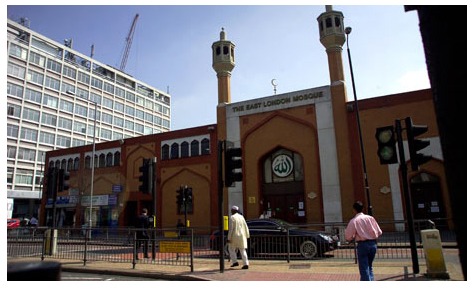The list was drawn up for Charles Farr, the director general of the Office for Security and Counter-Terrorism (OSCT), a directorate of the Home Office. Farr is a former senior intelligence officer.
It was sent to him in June by the Quilliam Foundation, a counter-extremism thinktank which has received about £1m in government funding.
Quilliam was co-founded by Ed Husain and Maajid Nawaz, former activists in the radical Islamist party Hizb ut-Tahrir. Critics of the foundation accused it of McCarthyite smear tactics and branded its claims ridiculous. The foundation declined repeated requests for comment.
The document sent to Farr is entitled “Preventing terrorism; where next for Britain?” It lists alleged extremist sympathisers, including the Muslim Council of Britain, the main umbrella group in Britain for Islamic organisations. It also claims that a Scotland Yard counter-terrorism squad called the Muslim Contact Unit is dominated by extremist ideology.
Other groups include the Muslim Safety Forum, which works with the police to improve community relations, the Islamic Human Rights Commission, and even the Islam Channel, which provides television programmes for Muslims on satellite.
The briefing document says: “The ideology of non-violent Islamists is broadly the same as that of violent Islamists; they disagree only on tactics.
“These are a selection of the various groups and institutions active in the UK which are broadly sympathetic to Islamism. Whilst only a small proportion will agree with al-Qaida’s tactics, many will agree with their overall goal of creating a single ‘Islamic state’ which would bring together all Muslims around the world under a single government and then impose on them a single interpretation of sharia as state law.”
The document adds that if local or central government engages with such groups “it risks empowering proponents of the ideology, if not the methodology, that is behind terrorism”.
The report was addressed personally to Farr and says it is not to be seen by civil servants, only by him, ministers and their special advisers. Nonetheless, it was leaked and posted on the web.
Also listed in the document are the Muslim Association of Britain, the Federation of Student Islamic Societies, the Cordoba Foundation, and Muslim Welfare House, based in north London, which was instrumental in forcing the extremist cleric Abu Hamza out of the Finsbury Park mosque where he preached.
The Finsbury Park mosque, now under new management, is also declared extremist, as are Birmingham Central mosque and the East London mosque.
Politicians described as “Islamist backed” include Salma Yaqoob, who stood for the Respect party in Birmingham, and the former MP George Galloway.
The government has made public efforts to woo British Muslims by promising reviews of disliked policies such as stop and search and the Prevent programme, which aims to tackle extremism.
Fatima Khan, vice-chair of the Muslim Safety Forum, said: “[Quilliam’s] attack on the MSF is yet another example of their McCarthyism and desperation to ensure government funding. We deplore such tactics that seek to slander, divide and discredit genuine organisations that work within the grassroots of the Muslim communities for the purpose of our safety.”
The Labour MP Keith Vaz, chair of the home affairs select committee, said: “I think it’s very dangerous to be drawing up lists of this kind. I am concerned and will be writing to the home secretary to ask if the government requested this list, what is the status of this list, and why it is being considered in this way.”
Inayat Bunglawala, chair of Muslims4Uk and a former MCB spokesperson, said: “This is just like something straight out of a Stasi manual. The advice from Quilliam is frankly appalling and incredibly self-serving.
“This is a truly shocking document, and it is little wonder that the Quilliam Foundation marked it as being not for public disclosure. In effect, Quilliam – a body funded very generously by the government through Prevent – are attempting to set themselves up as arbiters of who is and is not an acceptable Muslim. Their document specifically contains a McCarthy-type list of large and established Muslim organisations that they regard as suspect and smears them as being ‘Islamists’.”
“The list demonises a whole range of groups that in my experience have made valuable contributions to counter-terrorism.” Robert Lambert, co-founder of Scotland Yard’s Muslim Contact Unit
He said he had never seen such a list before, warned that it could damage Muslim confidence in the government, and said the meaning of the list was clear: “They are arguing these are either witting or unwitting fellow travellers, providing the mood music for the terrorists.”
Quilliam’s argument is that the government cannot merely tackle those advocating terrorist violence, but also has to target those who have the same views, even if they advocate peaceful means.
Senior Tory party figures are sympathetic to such views. One source with knowledge of Conservative thinking on security issues told the Guardian that the briefing document is “quite in line with what Quilliam and the Conservatives have been thinking for years”.
The briefing document from Quilliam also addresses the Prevent programme, which the Conservative coalition has criticised.
Asked to comment, the government concentrated its response on this aspect.
A Home Office spokesperson said: “We believe the Prevent programme isn’t working as effectively as it could and want a strategy that is effective and properly focused – that is why we are reviewing it.”
By: Vikram Dodd, crime correspondent, GUARDIAN.CO.UK







